Demonstration vs. Discernment (I.D. VIII)
I have just begun reading Part 2 of Dembski's book, "A Theory of Design." This group of three chapters apparently presents the crux of Dembski's argument that the natural biological world bears demonstrable marks of intelligent design.
Or, more to the point, that this particular proposition has "empirical content."
 |
| Robert Stalnaker |
Content requires contingency. To learn something, to acquire information, is to rule out possibilities. To understand the information conveyed in a communication is to know what possibilities are excluded by its truth.
According to the same endnote, a scientific theory has empirical content "if it entails or renders probable a proposition that has empirical content."
I note in passing that the phrase "or renders probable" makes me queasy. Not exactly a crisp definition of something that would seem to absolutely require one: the notion of a theory that has "empirical content."
I expect Dembski will tighten up the definition as he goes along. Meanwhile, I have to admit I am perplexed at this point. For in his third chapter, "The Demise of British Natural Theology," he makes an argument that I either don't understand or don't agree with.
In the final several sections of this chapter Dembski seems to be laying the groundwork for claiming that the "apparent contrivance" in nature is the result of intelligent design, yes, but not the result of out-and-out miracles. But neither is it the result of natural lawfulness alone, whether God-ordained or not. Rather, it is the result of something in between these two positions: "intelligent causes" which, unlike mere "physical" or "mechanistic" causes, cannot be subsumed under the laws of nature.
Natural life forms need not be actual contrivances which simply popped into full-blown existence miraculously — a fact which Dembski likes, since miracle-based biology has no "empirical content."
If nature's apparent contrivances are not in fact actual contrivances — as in the well-known analogy of each species being like a watch, and thus having a hidden watchmaker, which Darwin showed not necessarily to be correct — they still require an explanation (see n. 42, p. 287).
But positing, with Charles Babbage in the 1830s, that God made the laws of nature and the laws of nature "took over from there" does not suit Dembski either — and here is where I think I begin to part company with him, if I understand him aright, that is.
Dembski seems to feel that doing biological science based on nothing but natural law, while continuing to assert the proposition that these laws enact God's intentional design "on their own," robs the intelligent design proposition of "empirical content" just as badly as a bare appeal to miracle does.
 |
| Stuart A. Kauffman |
Yet he seems to feel that once these laws have been fully discovered and documented, they will be sufficient to account for the appearance of contrivance in the biological world all by themselves — that is, as "handmaidens" to Darwin's natural selection and heritable variation, but with no need to appeal to the sort of supra-legal divine activity Dembski seems to have in mind.
This supra-legal divine activity consisting of supposed "intelligent causes," I repeat, is not miracle-working, since miracles have no empirical content. Nor is it simply being content to watch natural law produce wondrous complexity, à la Stuart Kauffman — the intelligent design proposition, Dembski says, lacks empirical content in that case, too.
But who (besides Dembski) says the intelligent design proposition necessarily has to have empirical content, anyway? And if it does — Dembski seems about to embark on some sort of calculation that will show the contrary proposition, no evidence of design whatever, to be extremely dubious — who is to say that God's benign non-interference with intermediary laws of self-organized complexity is absolutely ruled out as the explanation for apparent contrivance in nature?
My point is sharpened by the opening section of chapter 4, "Naturalism and Its Cure." The section itself is called "Nature and Creation." Dembski's topic is how we use the two words nature and creation semi-synonymously. All the while, we studiously ignore that the former suggests a world wholly independent of God, while the latter implies a divine Creator.
Our science today, he says, assumes nature in that sense of the word and only speaks of creation and creatures metaphorically. But such a fully naturalistic view cannot answer the question, Dembski asserts, "Whence cometh the order of the world?" (p. 99). Dembski goes on, further down the page:
For those who cannot discern God's action in the world, the world is a self-contained, self-sufficient, self-explanatory, self-ordering system.
He identifies such people as, to use the words which Paul wrote in his First Letter to the Corinthians 2:14, psychikos as opposed to pneumatikos: "natural" or "soulish" as opposed to "spiritual" (see n. 1, p. 287). In "severing the world from God," he says they are guilty of committing "the essence of idolatry."
Here is one point where I think Dembski goes wrong. He confuses discerning God's action in the world with being able to demonstrate it.
By demonstration I mean the sort of thing which is possible only if that which is being demonstrated has "empirical content." Dembski is at pains to demonstrate the existence of "intelligent causes," supposedly needed to explain nature's wonders, because he seems blind to the possibility that spiritual discernment of a God behind nature does not require empirical demonstration.
I read Paul in exactly the opposite way, as suggesting that spiritual discernment is the appreciation of God's relationship to the natural world without demonstration or proof.
For some reason, I find that I want God's creative relationship to the evolving world to be one of being discernible behind it rather than being demonstrably "in the causal loop," as it were.
This puts me at odds with William Dembski at a rather deep level, I realize. It is obvious to me that he wants God's causal efficacy to be as demonstrable as I don't want it to be.
I can't really say why he wants demonstrability over mere discernibility. I suspect it may be because he is in love with logic. With mere discernibility, there is a missing link in the logic of "intelligent design."
I on the other hand am in love with that particular missing logical link. Perhaps it is because I think that it, and it alone, guarantees my (and the world's) freedom from divine determinism.






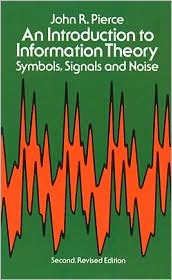

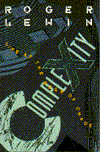

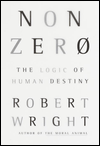

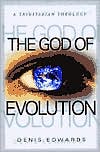

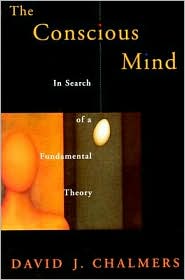
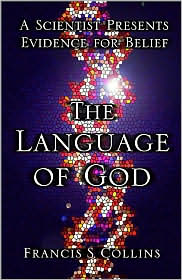


0 Comments:
Post a Comment
<< Home